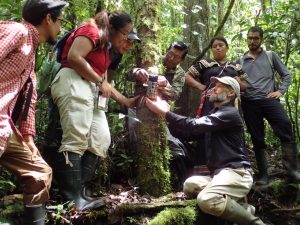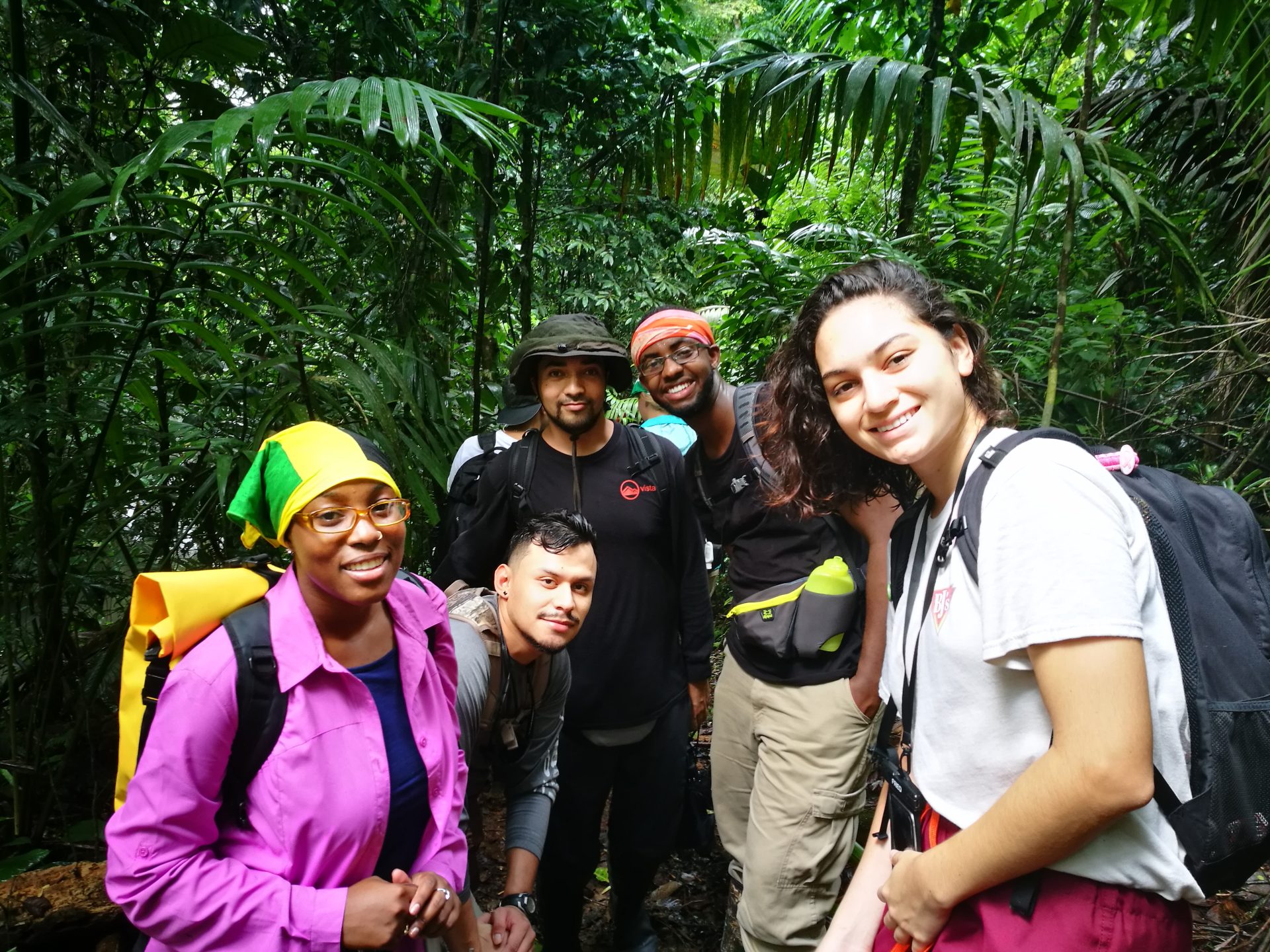The Organization for Tropical Studies hosts a summer research experience for undergraduate students from underrepresented minorities in STEM (Science, Technology, Engineering and Math). The Louis Stokes Alliance for Minority Participation (LSAMP) Program at the National Science Foundation funds this program, where each year 30 students gain hands-on experience developing their own research. Furthermore, the program is designed to increase the appreciation of students own and that of other cultural backgrounds, improve student scientific literacy, to develop research skills, and to develop the motivation to expand their professional network while promoting the self-confidence to continue along a STEM career trajectory.
Last summer, 31 students from LSAMP institutions in the USA spent nine weeks at La Selva or Las Cruces Research Stations conducting research projects under the guidance of sixteen research mentors/ mentor teams (two students per mentor, except for one mentor who worked with one student). The program consisted of an orientation week (with orientation activities and preliminary fieldwork, followed by an all-day student research symposium), six weeks of data collection, and two weeks of data analysis/writing, and culminated in students’ final reports and formal conference-style presentations of their work.
During the program, students carried out their projects and also participated in ethics discussions, attended seminars on various tropical ecology topics, attended a graduate school Q&A panel, went on field trips, participated in a two-day science communication/video workshop with two filmmakers from Day’s Edge Productions, organized their own cultural exchanges, analyzed their data and wrote final reports. Students also prepared formal conference-style Power Point presentations, which were publicly presented two days before students departed from La Selva/Las Cruces. Students produced videos for their science communication workshops, which can be viewed here:
https://www.youtube.com/watch?v=1huJnI8Ov1s&feature=youtu.be
https://www.youtube.com/watch?v=eYC37E9dtD0&feature=youtu.be
https://www.youtube.com/watch?v=FZW7p4sEVkY&feature=youtu.be
https://www.youtube.com/watch?v=Ffc6eDwj2GU&feature=youtu.be
https://www.youtube.com/watch?v=Oevrnfr9B7E&feature=youtu.be
https://www.youtube.com/watch?v=5Yp5fJ0zdDk&feature=youtu.be
https://www.youtube.com/watch?v=5Yp5fJ0zdDk&feature=youtu.be
https://www.youtube.com/watch?v=6NuUp_B51W4&feature=youtu.be
A new addition this year was a pre-program mentor workshop, where home mentors and field mentors were able to interact for two days and discuss key aspects of student participation in the program. The workshop allowed students’ home mentors and field mentors to meet, interact, work together to construct a “contract” that would be signed by each student/ home mentor/field mentor trio, and discuss strategies and challenges for mentoring students from underrepresented minorities. The workshop was well received by all recipients: it provided home mentors with a better idea of what the REU program and life at La Selva and Las Cruces are like, and field mentors received valuable perspectives about the students they would be mentoring over the summer.
REU RECRUITMENT EFFORTS

In the Fall of 2018, a new recruiting campaign was held, where over 40 institutions from 5 LSAMP alliances were reached. In February 2019, we closed applications receiving 195 in total, from which 163 meet all the program criteria. Applications came from 37 out of 50 alliances and from 108 institutions. We are now in the process of announcing our selected students the acceptance to the program. Stay tuned for more news from our 2019 REU cohort!

